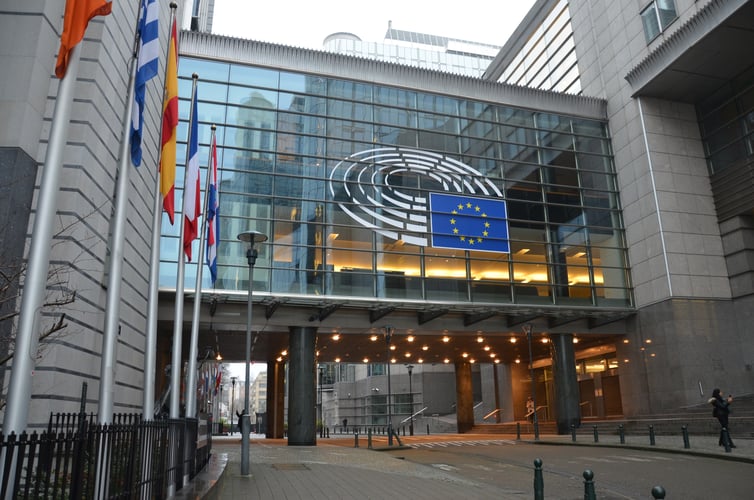

📌 Written by CSRD specialist Yoeri Buis, this article summarizes the November 13th European parliament update on CSRD and Due diligence requirements. It was voted in favor of simplifying CSRD and Due diligence. This narrows the scope of sustainability reporting- and due diligence obligations for large companies.
November 13th CSRD CSDDD update, key takeaways:
- Non-financial reporting will apply only to companies with on average more than 1,750 employees and annual turnover exceeding €450 million.
- Due-diligence obligations will apply only to companies with over 5,000 employees and annual turnover above €1.5 billion.
- The obligation to publish a formal transition plan aligned with the Paris Agreement is removed; liability and enforcement will be handled at national level instead of EU level.
- A new EU digital portal will provide businesses free access to templates, guidelines and information on all reporting and due-diligence obligations to ease compliance.
The press release can be found here: Sustainability reporting and due diligence: MEPs back simplification changes | News | European Parliament
Nov 13th Changes: The EU simplifies CSRD- and Due Diligence obligations
The European Parliament has adopted changes to sustainability-reporting and due-diligence rules as part of the Commission's “Omnibus I” simplification package. Under the approved amendment, non-financial reporting for social and environmental matters will apply only to companies that on average employ more than 1,750 fte and have a net annual turnover exceeding €450 million.
Due diligence requirements apply only to large corporations with more than 5,000 employees and a net annual turnover of over €1.5 billion. These companies need to adopt a risk-based approach to monitoring their negative impact. Instead of systematically requesting information from their smaller business partners, they should rely on information that is already available and could only request additional information from their smaller business partners as a last resort.
These companies would no longer need to prepare a transition plan aligned with the Paris Agreement. They could be fined if they fail to meet due-diligence rules, with guidance provided by the Commission and Member States. Enforcement would take place at national level, where companies would also be required to fully compensate victims for any damages.
Members of the European Parliament also want the Commission to create a digital portal where businesses can access free templates, guidelines and information on all EU reporting requirements, complementing the European Single Access Point.
How the European Parliament came to this outcome
The European Parliament debated and voted on the negotiating position on Thursday 13th, securing 382 votes in favour, 249 against, and 13 abstentions. These changes originate from the Commission’s proposal of 26 February 2025 that aimed to simplify the EU rule-book and reduce administrative burdens on business as part of the “Omnibus I” package.
The rapporteur for the Legal Affairs Committee, Jörgen Warborn (EPP, SE), said that the vote shows Europe can be both sustainable and competitive, reducing complexity while giving businesses clarity to grow, invest and create jobs.
What is next
The decision represents a major adjustment to the CSRD, aimed at making the rules clearer and reducing complexity for companies operating across borders. More detailed provisions, sector guidance and the final legal text will follow after the Parliament’s press conference and the upcoming negotiations with the Council.
For organisations already working toward CSRD compliance, it is important to review the new thresholds, watch for additional official materials, and update internal reporting plans as the simplification package moves toward final adoption.
We will monitor all changes closely and keep you up to date with the latest news.



